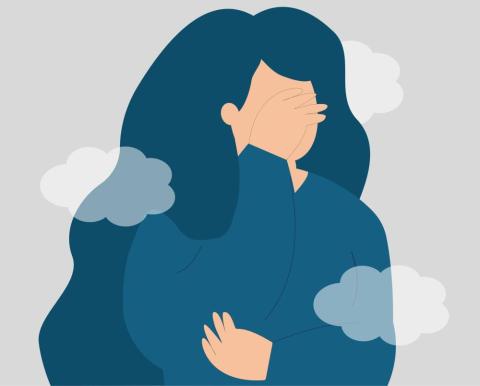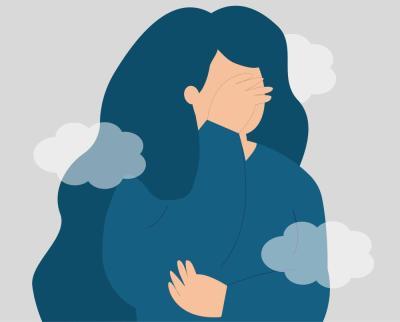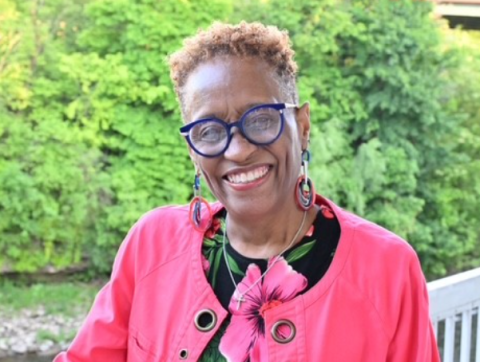How to Manage Post-Covid Anxiety
How to Manage Post-Covid Anxiety

“We should start thinking about looking at office spaces."
My colleague texts me one afternoon. “There are some great ones available!”
“Awesome!” I write back, the pit in my stomach growing bigger by the second. “It will be great to be with everyone in-person again!”
As the U.S. vaccination rate increases and COVID-19 rates decrease, the question on everyone’s mind is “When will things go back to normal?” Secondarily, a majority of people follow that question with “Why am I so nervous about returning to normal?”
The human body is a complex system, much of which runs without our direct guidance. One part of this system is your fight or flight response: the natural alarm system that your body has to protect you from possible danger, like from fires, hurricanes or bear attacks. Over time, your body’s alarm system learns more about what types of danger exists in the world and how to protect you from those dangers. What happens, then, when your body has been taught to be scared of something that is no longer inherently dangerous?
Over the last year and few months, we have been teaching our bodies to be conscious of stimuli that we previously ignored. We check for a mask before leaving the house, keep tabs on who is in our vicinity when out in public and sanitize our hands after touching multi-use items. We have avoided crowds of people and refrained from eating inside of restaurants. Before socializing with friends we ask questions related to the number of people that will be in attendance and question the mask-policy. Many of us have significantly reduced the amount of time we spend out of the house because our workplaces are now our home-offices.
Home is the ultimate safety signal. We come home and relax many of the behaviors we have learned to keep ourselves safe during the pandemic. We remove our masks, talk with our family members in close proximity and touch things without sanitizing. The comfort we feel at home, while satisfying, also reminds us of the danger lurking outside.
As we begin to consider a post-Covid existence, the messages we have given our bodies about the danger that exists in the world do not simply disappear. Our bodies do not know that eating in a restaurant is safe or dangerous—it learns whether or not it is safe or dangerous through our actions. Our bodies don’t inherently want us to put on a mask—we have taught our bodies to send out an alarm when a mask is not worn. Our behaviors over the past year have indicated to our internal alarms that a reaction is warranted in certain situations. The knowledge that the alarm is no longer necessary is not enough for our bodies to stop reacting.
Luckily, though, just as your body can learn to become afraid, we can also help it to learn that it does not need to be afraid in certain circumstances. Exposure and Response Prevention (ERP) is the recommended treatment for anxiety-based disorders because of the way it helps individuals “unlearn” being afraid of certain things. ERP involves gradually exposing a person to feared stimuli, teaching the person that they are capable of handling the situation (and hopefully allowing them to gradually experience a decrease in the fear response). The same principles of ERP can help us as we re-enter the world.
Here are some tips for a gradual re-entry into a post-COVID world:
- Make a list of activities that you would like to start doing again or will need to start doing again. Rank them by level of stress or anxiety and start with the activity that is lowest on the list.
- Break down more anxiety-provoking activities into smaller steps. For example, if you have not eaten in a restaurant in a while, grab takeout and start by eating in a public place. Then get a drink outdoors somewhere, before working up to eating a full meal outside.
- When you are planning on doing something you have not done in a while, notice your thinking. Are you planning for the worst case scenario? Are you telling yourself it will be scary and hard? Our thinking has a huge impact on our experience. Focus on the present and try not to engage with worry thoughts. Thoughts are not facts!
- Acknowledge the uncertainty that still exists in the world. Nothing is certain! If your brain tries to give you a “what if” question (e.g. What if this isn’t safe?) you can answer yourself with: Maybe yes, maybe no! I am willing to be uncertain about this.
- Make sure to reward brave behaviors! If you are feeling anxious about going back into the office, make a plan to talk with a colleague you have missed or get a coffee mid-day as a reward for facing your discomfort.
- Seek support from friends and family. About half of Americans are apprehensive about returning to in-person interactions after the pandemic, according to a report from the American Psychological Association, which means that there is a strong chance the person you talk with may be able to validate and relate to your experience. Facing fears with a supportive person may reduce the level of anxiety associated with the situation.
- Seek support from a mental health professional. If you need help finding a therapist to speak with, the ADAA website is a great place to start! You can search through the therapist directory here.

















